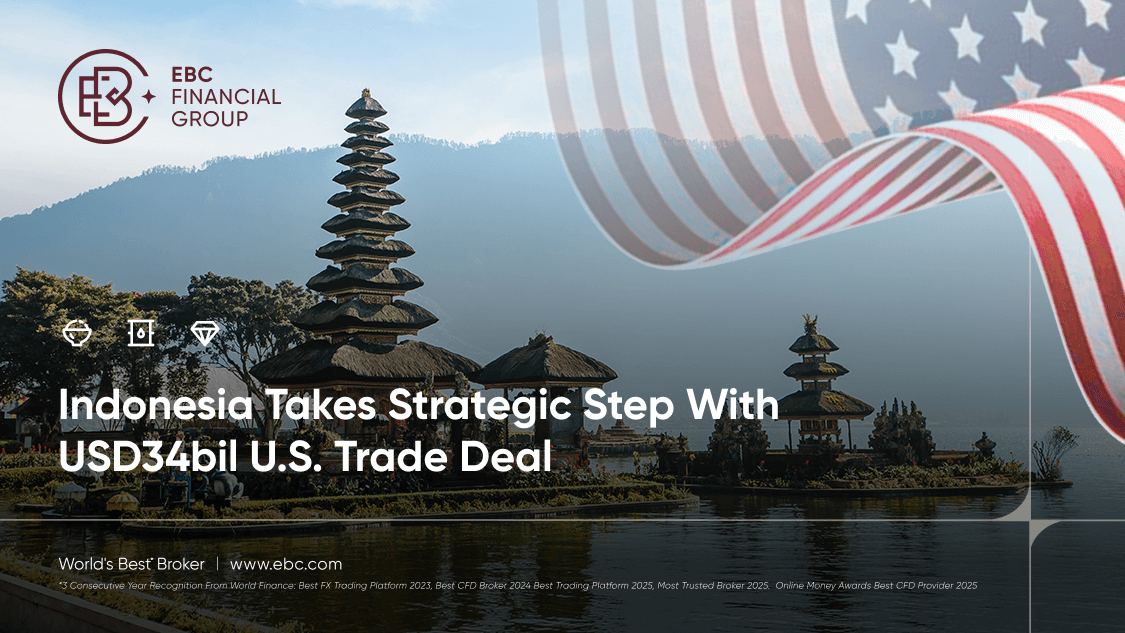With the clock ticking toward a 1 August tariff deadline, Indonesia has moved
swiftly to avert potential trade fallout, showing the world how the Southeast
Asian nation is not just reacting to global pressure but is setting the terms.
In a decisive move this week, the Indonesian government facilitated the signing
of USD34 billion worth of commercial agreements between Indonesian companies and
U.S. firms, covering key sectors like energy, agriculture, aviation, and
minerals. The goal is not only to ease trade tensions with Washington but to
secure long-term benefits for Indonesia's industries, supply chains, and
workers.

According to the Indonesian Embassy in Washington, the deals were finalised
during a series of high-level meetings on 7 July, with the government playing a
key enabling role in convening and supporting negotiations between stakeholders.
The outcome includes multiple memorandums of understanding (MoUs), which open
new doors for Indonesian companies and aim to strengthen national economic
resilience.
"Indonesia is stepping into the conversation not as a target, but as a trade
partner with long-term value to offer," said David Barrett, CEO of EBC Financial
Group (UK) Ltd. "What's notable is not just the scale of the import offer—it's
the subtext: energy security, agricultural resilience, and access to strategic
minerals. This is about more than tariffs. It's about who shapes tomorrow's
supply chains."
Tariffs Loom, but So Does Leverage
The agreements come as Washington considers a 10 percent base tariff on all
imports, with a potential additional 32 percent specifically applied to
Indonesian exports if a new deal is not reached by 1 August. These proposed
tariffs could affect a wide range of goods, from electronics to apparel,
prompting Jakarta to take pre-emptive steps to safeguard trade stability.
One of the most impactful elements of the agreement is the USD1.25 billion
wheat import deal, which will support Indonesia's food processing and milling
industries. Major local players like FKS Group and Sorini Agro Asia Corporindo
were among the signatories, alongside U.S. agribusiness giant Cargill.
The energy sector sees PT Pertamina's new procurement deals set to affect
Asia-Pacific LPG benchmarks—but analysts caution that pricing must remain
competitive with existing suppliers to avoid strain on subsidies. Pertamina
signed an MoU to increase imports of U.S. liquefied petroleum gas and refined
fuels, part of Jakarta's broader push to diversify energy sources and enhance
national fuel resilience.
However, some analysts have flagged that fuel imports must remain
competitively priced, and the benefits must be weighed against domestic supply
conditions. If U.S. fuel turns out to be more expensive than existing suppliers,
Indonesia's energy subsidy balance could come under pressure.
Balancing Deficits and Deepening Partnerships
While trade imbalances remain a political issue in Washington, data from the
U.S. Trade Representative's office shows a USD17.9 billion goods trade deficit
with Indonesia in 2024, up 5.4 percent, showing that the agreements reflect a
broader shift in how Jakarta approaches global partnerships.
"Indonesia isn't playing defence—it's negotiating from strength," Barrett
added. "As the world embarks on a delicate act of trade rebalancing, Washington
needs reliable mineral partners. That gives Indonesia a key card to play."
Beyond headline numbers, the deal signals Indonesia's ambition to lead
regional trade strategy, supporting domestic food security, strengthening energy
access, and securing a long-term role in strategic global supply chains.
Jakarta's approach stands out in the region by putting concrete offers on the
table.
Looking Ahead: A Defining Moment for Indonesia's Economy and Markets
For Indonesia, this trade package is more than a diplomatic signal, it's a
domestic strategy with real implications for jobs, supply chains, and national
resilience. The near-term benefits are tangible: expanded opportunities for
farmers and food processors, stronger energy security through new fuel sources,
and a wider global spotlight on Indonesia's role in mineral exports. For
markets, the increase in agricultural imports may lift U.S. wheat and corn
prices, potentially shifting regional grain flows.
Longer-term, the country is placing a strategic bet: that it can evolve from
a raw commodity exporter to a value-added player in the global manufacturing and
green energy transition.











